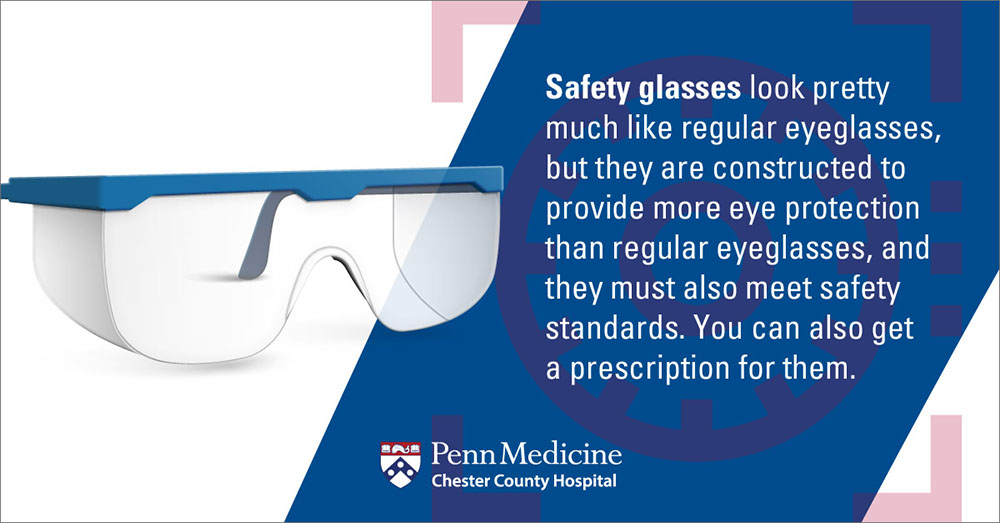If you belong to that exclusive group of people who have near-perfect vision and you're in your 30s or 40s, here's some sobering news: Your eyesight may eventually begin to diminish.It may take a little longer than it has for some who have been wearing glasses since fourth grade, but rest assured, your time is coming.
In fact, it may throw you off guard. One day your vision is fine, and then the next day you're squinting. Well, maybe it's not that sudden, but sometime in your 40s you may find yourself increasing the font size on your phone. Food labels look fuzzy. You may not be able to read road signs from as far as away as you used to. You may have to move your book or magazine closer or further away.
John J. DeStafeno, MD,
Opthalmology
These changes are a natural progression of aging. Still, there is plenty you can do to keep your eyes healthy and potentially slow down the erasure of your 20/20 vision.
John DeStafeno, MD, a board-certified ophthalmologist on the medical staff at Chester County Hospital, shares 3 tips to maintain your vision health.
1. Get Dilated Eye Exams
"Unlike a regular eye exam, a dilated eye exam allows an eye care professional to look at the back of your eyes for any indication of disease. They do this by placing drops in your eyes so they can widen the pupil (dilate), which allows more light into the eye and makes it easier for them to examine your eyes," says Dr. DeStafeno.
"There is also another alternative to a dilated eye exam - widefield fundus photography - where cameras are used to obtain a photo with the same view as a dilated exam. Fundus is the back of the eye where the retina and optic nerve reside, and a baseline photo of this area allows your ophthalmologist to rule out tumors, macular degeneration and other retinal diseases. The photo becomes part of your permanent record and allows for a more efficient exam," he adds.
Further, since eye drops are not generally used, you will not be dilated with blurred vision for hours.
The most common age-related eye conditions to watch out for are:
- Glaucoma - a condition that can result in vision loss because of damage to the optic nerve.
- Diabetic Eye Disease - a leading cause of blindness caused by diabetes complications.
- Age-related Macular Degeneration (AMD) - a disease that gradually destroys your central vision, which is needed for common, everyday tasks.
- Dry Eye - a condition that causes a reduction in tear production and makes it more difficult to read or use a computer for any long period of time.
- Cataracts - a condition that causes the lens to become cloudy or blurry and generally occurs with age.
2. Put Your General Health First
That boils down to eating healthy, staying at a healthy weight, and staying away from smoking.
A well-balanced diet is key to getting all the nutrients to keep your eyes healthy, including:
- Zinc - produces melanin (protective pigment in your eyes) by bringing Vitamin A from your liver to the retina
- Vitamin E - prevents free radicals from destroying healthy tissue
- Vitamin C - slows down visual acuity (clarity of vision) and lowers your risk for cataracts
- Zeaxanthin & Lutein - reduces common eye diseases, such as age-related macular degeneration
- Omega-3 Fatty Acids - helps with retinal function and proper visual development
"A balanced diet is also key to maintaining a healthy weight. That's important for eye health because certain conditions - glaucoma or diabetic eye disease - can result in vision loss," adds Dr. DeStafeno.
It's the same with cigarettes. Smoking can increase your risk of developing optic nerve damage or age-related macular degeneration.
3. Protect Your Eyes At Home
You can easily injure your eyes at home just from doing daily tasks. Whether you're dusting your house, painting a room or cleaning the gutters outside, you could be introducing contaminants into your eyes if you aren't wearing some type of protection over them.
Safety Glasses or Goggles

Safety goggles provide more protection and prevent particles from getting in. If you're someone who likes to clean your house with bleach and other chemicals, safeguarding your eyes with goggles could offer you some much needed protection. This also goes for people who like doing yard work, woodworking, or other activities that could lead to particles or chemicals flying in your eyes.
Eye Injuries at Work
Of course, there are eye injuries in the workplace, too. In fact, approximately 2,000 US employees experience eye injuries that require some form of medical treatment according to The National Institute for Occupational Safety and Health (NIOSH). "If your job puts you in close contact with particles, dust, chemicals or anything that could cause an eye injury, talk to your doctor about the best way to protect your vision health," Dr. DeStafeno explains.
When Is It Time To Get Your Eyes Examined?
Even if you are getting regular eye exams, there are specific symptoms that can occur in between your exams that may require you to see an ophthalmologist. This type of eye care professional can see the warning signs of eye diseases and work with you on treatments, if needed.
To find an ophthalmologist near you, contact Chester County Hospital's provider referral line at 610-738-2300.
Related Information from Chester County Hospital: